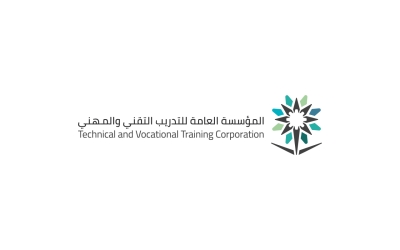
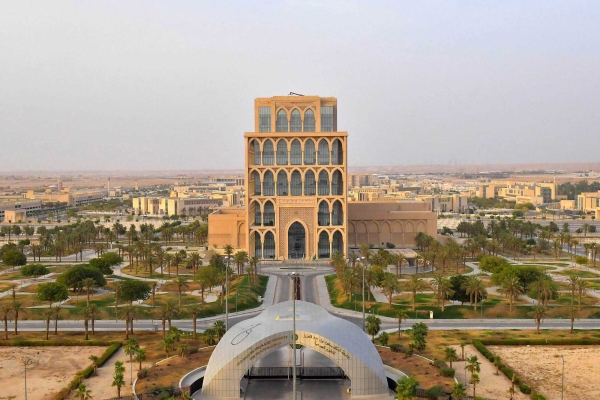
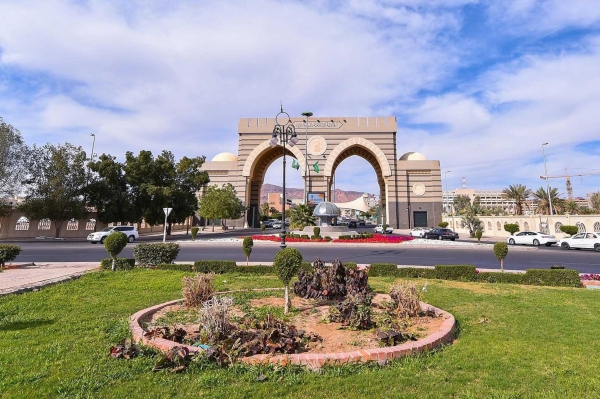
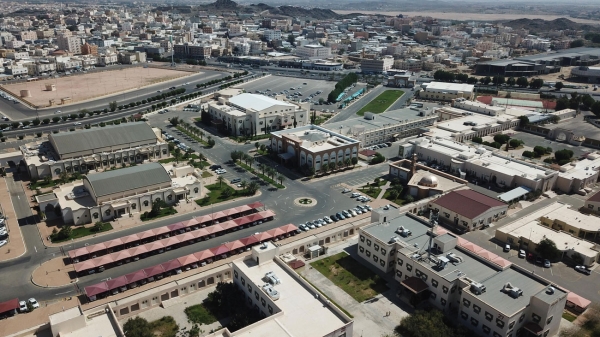
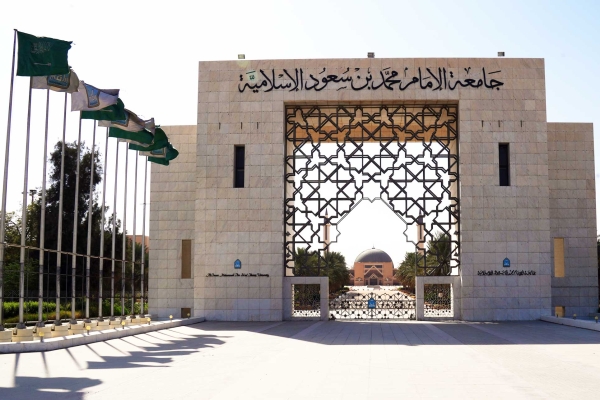
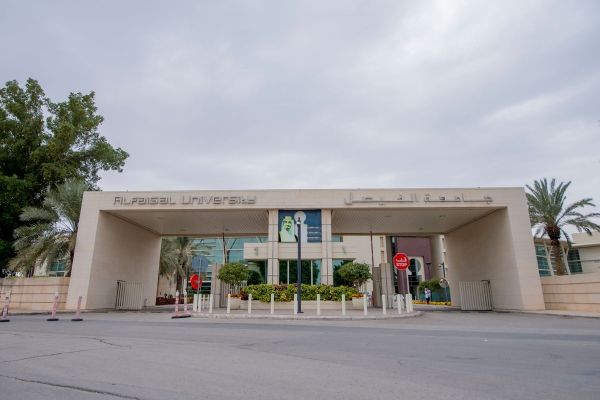
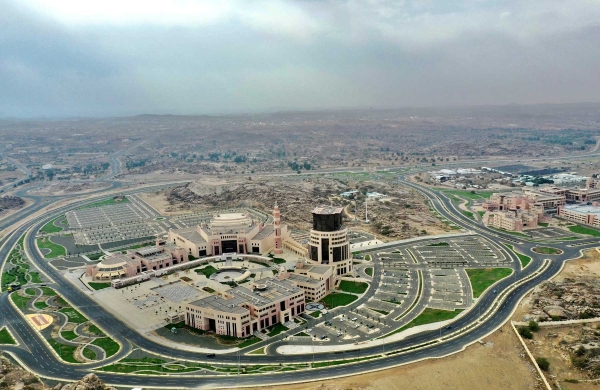
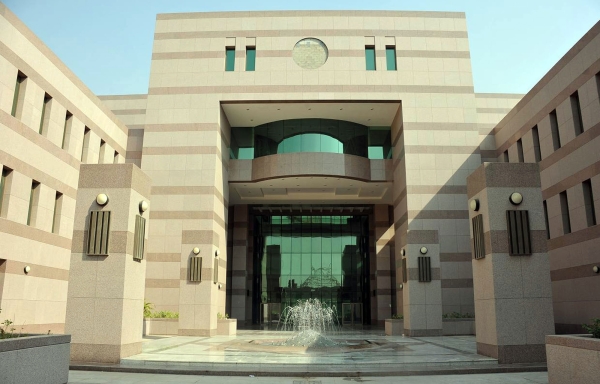
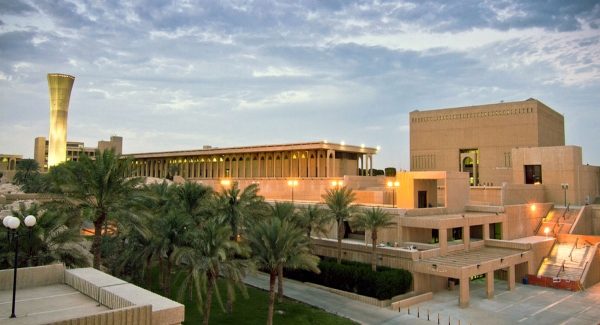
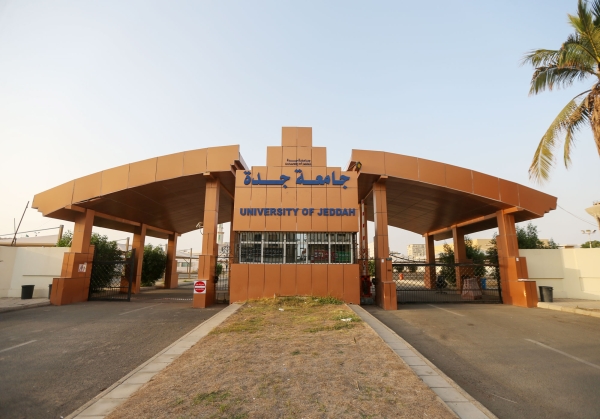
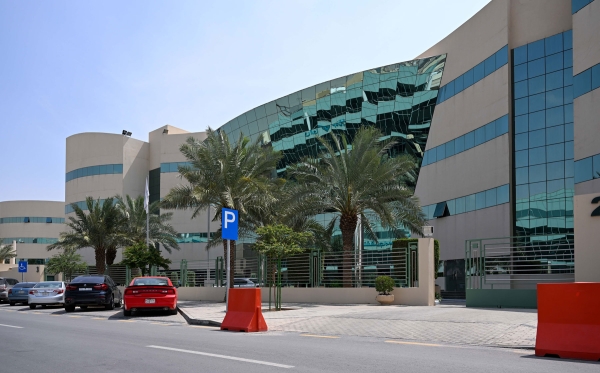
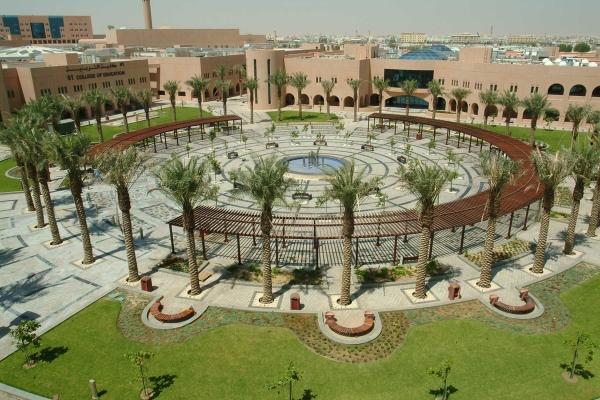
Universities in the Kingdom of Saudi Arabia are public academic institutions with independent financial and administrative legal status. They operate under the Kingdom's educational policy as outlined in the Universities Law.
Universities focus on post-secondary education, offering specialized programs that enable students to earn bachelor's, master's, and doctoral degrees. These include both governmental and private universities, which house colleges with diverse departments that prepare students to receive certification upon fulfilling their study requirements.
The establishment of universities began in 1957. In 1975, the Ministry of Higher Education was established to oversee the Kingdom's higher education policy and supervise Saudi universities. In 2015, a Royal Order merged the Ministry of Education and the Ministry of Higher Education into a single entity, the "Ministry of Education," which now oversees all universities in the Kingdom.
Higher Education in Saudi Arabia
Higher education is overseen by various entities. Historically, the Ministry of Higher Education supervised public and private universities, while the Ministry of Education managed teachers' colleges and girls' colleges. These roles were unified under the Ministry of Education following a merger. Technical colleges, communications colleges, and post-secondary technical institutes fall under the supervision of the Technical and Vocational Training Corporation. Previously, the Ministry of Civil Service oversaw the Institute of Public Administration, a responsibility transferred to the Ministry of Human Resources and Social Development. Additionally, the Ministry of Health supervises health colleges and institutes that train auxiliary health personnel, while the Royal Commission for Jubail and Yanbu manages the two industrial colleges located in al-Jubayl and Yanbu.
Special regulations govern higher education, including the Universities Law issued in 2019. According to its fourth article, the establishment of universities and their branches requires a resolution by the Council of Ministers based on a recommendation from the Council of Universities' Affairs.
About Saudi governmental universities
Saudi governmental universities offer programs at five different levels: intermediate diploma, bachelor's, higher diploma, master's, and doctorate. The country hosts twenty-nine governmental universities, along with thirty-eight private universities and colleges overseen by the Ministry of Education.
In 2023, approximately 1,360,000 male and female students were enrolled in higher education institutions across Saudi provinces and governorates. Governmental universities provide free bachelor's-level education to Saudi citizens and scholarship students, along with a monthly stipend for both groups.
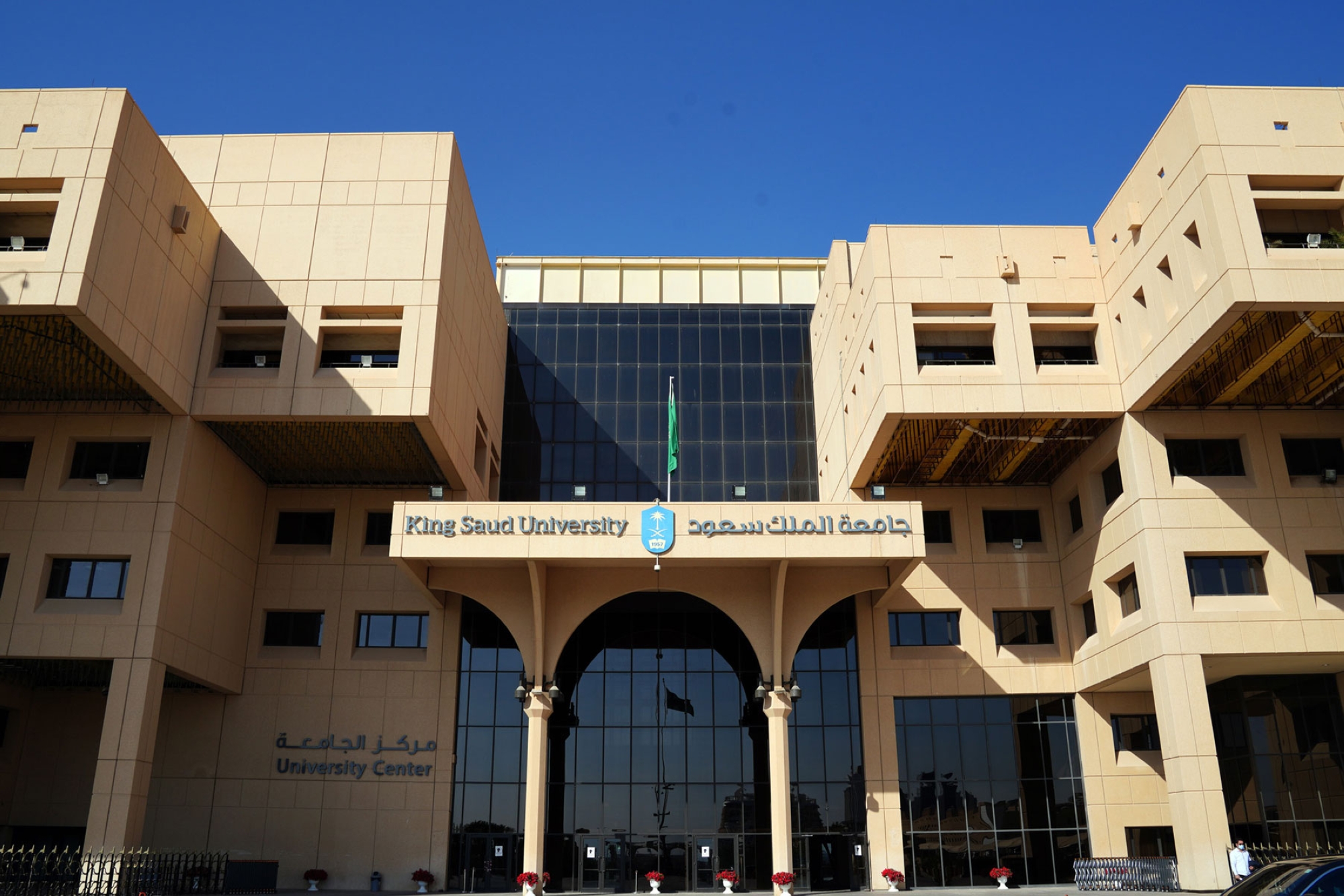
The establishment of Saudi governmental universities began with the establishment of King Saud University in the capital, Riyadh, in 1957. This was followed by the Islamic University in al-Madinah al-Munawwarah in 1961 and King Fahd University of Petroleum and Minerals in Dhahran in 1963.
Also, King Abdulaziz University in Jeddah was established in 1971, Imam Mohammad Ibn Saud Islamic University in Riyadh in 1974, King Faisal University in al-Hufuf in 1975, and Umm al-Qura University in Makkah al-Mukarramah in 1981.
Between 1998 and 2005, eight more universities were inaugurated, beginning with King Khalid University in Abha and concluding with King Saud Bin Abdulaziz University for Health Sciences.
Over the next decade, the number of governmental universities grew from fifteen to twenty-nine, including Princess Nourah bint Abdulrahman University in Riyadh and King Abdullah University of Science and Technology.
The Universities Law, issued in 2019, designated three independent universities in its first phase: King Saud University in Riyadh, King Abdulaziz University in Jeddah, and Imam Abdulrahman Bin Faisal University in the Eastern Province.
Higher Education Fund
The fund was established following a resolution by the Council of Ministers in 2000 to restructure student rewards within higher education sectors. It operates as an independent legal entity with administrative and financial autonomy, under the supervision of its Board of Directors. The fund pursues several key objectives, including:
Enhancing self-generated resources to enable universities to better manage and allocate rewards.
Diversifying funding sources and improving funding mechanisms for universities.
Supporting the development of higher education within universities and enabling them to align with evolving developmental needs.
Leveraging revenue from university-provided services and fostering private sector contributions.
Investing resources efficiently to bolster universities' available financial resources.
As part of its operational framework, the fund finances various projects aligned with approved classifications, such as:
Procuring equipment and laboratory supplies.
Establishing new colleges and expanding existing ones to serve the labor market.
Supporting universities' scientific and academic programs.
Addressing other needs, such as those of university hospitals.
Offering scholarships and creating employment opportunities for students.
Funding scientific programs, centers, and research initiatives.
Research and innovation
Research and innovation are cornerstone activities in Saudi universities. According to the Law of the Council of Higher Education and Universities, issued in 1993, universities encompass colleges, institutes, research centers, deanships, support centers, scientific institutes, and pre-university schools existing at the time of the law’s issuance, along with deanships and support centers approved by the Higher Education Council.
Saudi Vision 2030 supports research and innovation activities. Through this support, the Ministry of Education aims to position at least five Saudi universities among the top two hundred globally ranked institutions.
To achieve developmental objectives through research and innovation, the Ministry of Education supports universities' research and innovation efforts through national industries by stimulating research, promoting knowledge production, driving social and economic development, and ensuring private sector participation. More support has been provided to universities to develop research infrastructure and foster collaboration with other partners within the research and innovation system.
Saudi Vision 2030 has bolstered scientific research in universities and research centers through various initiatives, leading to a remarkable 120 percent increase in scientific publication output. This pioneering effort in the Kingdom aims to assist universities in developing a distinct research strategy and identity that enhances the quality and impact of their scientific publications. In 2020, the targeted number of peer-reviewed research papers from governmental universities was approximately 18,000, and 33,600 publications were verified.
Universities laws in Saudi Arabia
Several laws have been issued to regulate the work of Saudi universities, including:
Law of the Council of Higher Education and Universities
The Law of the Council of Higher Education and Universities, issued in 1993, comprises sixty articles. It defined universities as scientific and cultural institutions operating under the guidance of Islamic law. These institutions implement educational policies by offering university and postgraduate education, fostering scientific research, authoring, translating, publishing, and serving the community within their jurisdiction.
The law stipulates that each university has a legal personality with financial autonomy, enabling them to own property, manage assets, and engage in litigation. It also mandates the establishment of the Higher Education Council for universities and other higher education institutions, while each university has its own University Council.
The law allows universities to expand through branches, including colleges, institutes, or research centers outside their main campus. Such expansions require a resolution from the Higher Education Council, based on recommendations from the respective University Council.
The university is managed by the University Council, the University President, and Vice Presidents. The University President is appointed or dismissed by Royal Order upon the recommendation of the Minister of Education. Holding an excellent rank and subject to the provisions of excellent rank employees, the president is accountable to the Minister of Education and oversees the university's academic, administrative, and financial operations. He supervises the implementation of the law, its regulations, resolutions of the Higher Education Council, university policies, and board resolutions. The president represents the university before other authorities and may delegate some of his powers
As per the law, university faculty include professors, associate professors, and assistant professors. Each university operates with an independent budget, approved by Royal Decree, detailing revenues and expenditures. Financial oversight is conducted by the General Auditing Bureau (formerly). The university’s fiscal year aligns with the state’s fiscal year. The university's revenues include state budget appropriations, donations, grants, wills, endowments, income from its properties and their management, as well as revenues generated from conducting research projects, studies, or providing scientific services to others.
Universities Law
The Universities Law, established in 2019 through fifty-eight articles, replaced the Law of the Council of Higher Education and Universities issued in 1993.
The Universities Law aims to regulate higher education affairs, aiming to enhance the scientific, research, and societal standing of universities on local, regional, and international levels.
It stipulates that each university maintains an independent annual budget, which is approved by the Board of Trustees in accordance with the general regulations set by the Council of Universities' Affairs, following coordination with relevant entities. A university’s revenue sources include:
State allocations according to regulations governing the university financing program.
Fees for academic programs, diplomas, courses, and services offered.
Donations, gifts, grants, wills, and endowments.
Income generated from its properties, investments, and endowments.
Other financial resources approved by the Board of Trustees, as long as they align with the university's activities and their nature.
Regulation of Private Colleges and Universities
The Statute Regulating Private Colleges and Universities was issued in 2022 and consists of fifty-seven articles. As outlined in Article Two, the objective of the education institution, i.e. independent private universities and private colleges is to offer educational and training programs (beyond the secondary level). They aim to enhance the quality of education and scientific research while providing specialized academic fields, all within the framework of the Kingdom's educational policy.
The statute seeks to regulate and elevate the quality of private higher education, ensuring highly effective outcomes in line with the Kingdom's educational policy. To this end, the ministry oversees educational institutions and monitors their performance, with the following responsibilities:
Recommend approval for amending the articles of association and submit it to the Council of Universities' Affairs.
Recommend approval for the establishment, merger, or dissolution of colleges and institutes within the university and submit it to the Council of Universities' Affairs.
Recommend approval for the establishment, merger, dissolution, or renaming of scientific departments and the establishment of research centers, submitting these recommendations to the Council of Universities' Affairs.
Approve the addition of academic programs for licensing.
Approve the educational system of the educational institution.
Approve the hosting of conferences, seminars, scientific events, and other official occasions.
Amend, renew, or cancel the educational institution's license.
Monitor the educational institution’s performance.
The law further specifies that each private university must have a governing body known as the "University Council," chaired by the University President. Upon the recommendation of the Board of Trustees and the minister's approval, the university may establish a Scientific Council. This council, led by the Vice President for Scientific Research, includes representatives from each college or institute with at least the rank of Associate Professor. The Scientific Council is responsible for overseeing faculty scientific affairs and managing research, studies, and publication affairs.
Council of Universities' Affairs
The Council of Universities' Affairs is a Saudi government body focused on overseeing higher education in the Kingdom, working to regulate and elevate its status both locally and internationally. It was established in 2020 following the approval of the Custodian of the Two Holy Mosques King Salman Bin Abdulaziz Al Saud of the new Universities Law.
The council's responsibilities include: approving and supervising regulations for private universities, colleges, and foreign university branches; approving policies and strategies for university education; governing and assessing the academic, administrative, and financial performance of universities; determining programs and courses eligible for financial fees and setting related rules; monitoring the performance of university boards of trustees and ensuring the integrity of their decisions; approving scientific and technical cooperation agreements; and managing memoranda of understanding between universities and foreign institutions.
Composed of nine members and the council chair occupied by the Minister of Education, the council meets at least once every four months, convened by the chairman or their representative. A meeting is considered valid only if at least two-thirds of the members, including the chairman or representative, are present. The council also has a secretary-general, appointed by order of the Prime Minister upon the recommendation of the Minister of Education. The operational budget for the council's Secretariat is allocated within the Ministry of Education's budget.
Individuals with disabilities in university education
Saudi universities offer opportunities for individuals with disabilities to enroll through specialized programs and accessible facilities. These universities provide a preparatory year and establish dedicated committees for the education of individuals with disabilities, including the Scientific Committee, the Curriculum Committee, and the Support Services Committee.
In addition, special programs for individuals with disabilities in Saudi universities have been developed to enhance the language skills of beneficiaries, train professionals capable of effectively communicating with them, and prepare staff to provide appropriate support services. This is done by training and qualifying workers based on the latest scientific advancements in this field, as well as fostering cooperation with relevant regional and international entities. These programs also aim to raise societal awareness about the abilities, needs, and proper ways to interact with individuals with disabilities. They promote understanding of optimal ways to socially engage with this group, thereby facilitating their integration into society and empowering them to lead stable, independent lives.
Moreover, several Saudi universities have established services for individuals with disabilities. Examples include the Higher Education Program for Deaf and Hard-of-Hearing Students, the Universal Access Program - King Saud University, the Support Services and Universal Access Program – Princess Nourah University, the Deanship of Students Affairs for Persons with Disabilities – King Abdulaziz University, and the Ghali Department for People with Disabilities at Umm al-Qura University.
Technical and vocational education
To advance the technical and vocational capabilities of students across the Kingdom the Technical and Vocational Training Corporation (TVTC) has sought to increase the enrollment of high school graduates in vocational training. As a result, enrollment grew in 2020, reaching 23.77 percent, surpassing the target of 12.5 percent.
In line with the Kingdom’s efforts to enhance technical and vocational education and prepare human resources for the workforce in the technical and vocational fields, the fields of technical and vocational training were unified under the TVTC, with its board of directors led by the Minister of Education.
The TVTC is dedicated to developing technical and vocational programs and improving human resources to meet the needs of the Kingdom and the requirements of the business sector. A Supreme Order in 1983 prioritized technical education at the college level, followed by Supreme Approval for a bachelor's program in 1989. The TVTC further expanded its applied technical bachelor's degree programs to address the growing demand for highly qualified professionals to lead in technical and vocational fields.
In 2005, to broaden educational opportunities, the Council of Ministers issued a resolution to integrate the vocational training sector for girls into the TVTC and to establish technical colleges exclusively for women. The TVTC has since continued to enhance training programs, focusing on skills and operational efficiency, and has attracted international expertise in the field of vocational training to operate global colleges, strategic partnership institutes, and build the capacity of existing colleges to improve the quality of training.
Custodian of the Two Holy Mosques Scholarship Program
The Custodian of the Two Holy Mosques Scholarship Program aims to qualify skilled individuals capable of competing in the global and local labor markets and contributing to scientific research. The King's approval was issued in 2005 to provide scholarships to individuals wishing to pursue university and postgraduate studies to obtain academic qualifications aligned with labor market demands and the Kingdom's development goals.
Since its inception, the program has undergone several phases. The second phase of the scholarship began in 2011, followed by the third phase in 2015, which introduced the "Your Job, Your Scholarship" initiative. During this phase, the ministry sought to align scholarships with in-demand specializations in the labor market, ensuring job opportunities for recipients. In 2019, this phase concluded, leading to the introduction of new scholarship pathways.
One of the Custodian of the Two Holy Mosques Scholarship Program's new paths is the Track of Excellence for Scholarships, launched to achieve comprehensive development requirements as per the objectives of Saudi Vision 2030. This track focuses on enhancing the academic qualifications of male and female students by providing scholarships for them to top international institutions. It includes new and diversified specializations such as tourism and hospitality management, business administration, economics, and human resources.
Additionally, al-Rowad Track aims to provide scholarships for students to the world’s top thirty educational institutions across seven countries. This track encompasses a wide range of fields and specializations, all designed to enhance human capital, promote sustainable development, and achieve the requirements of Saudi Vision 2030.
Safeer system
The Safeer system, launched in 2010, is one of the systems aligned with the advancements of the Custodian of the Two Holy Mosques Scholarship Program. This technical platform streamlines the process of studying abroad by adhering to international standards and practices aligned with the scholarship regulations and legislation set by the Ministry of Education. It offers effective electronic services that facilitate the journey of students pursuing education overseas. The Safeer system aims to achieve several objectives, including:
Implement used technologies and leverage artificial intelligence tools to enhance the academic journey for scholarship students.
Provide smart services that enable students to seamlessly complete services related to study abroad.
Support scholarship entities by facilitating access to information, expediting transactions, and tracking student performance.
Improve spending efficiency and operational productivity through automated services and reduce human intervention.
Uphold quality standards of information security to ensure complete data confidentiality.
Offer real-time performance indicators and dashboards to support decision-making.
Enhance the quality and efficiency of electronic services for individuals seeking study abroad opportunities.
Internal and External Scholarships Program for Educators
To facilitate university studies for educators, the Internal and External Scholarships Program for Educators was launched. This program aims to send educators to study in Saudi universities and international universities to obtain master's and doctoral degrees in specific specializations according to the needs of the educational community.
The scholarship operations department at the Ministry of Education prepares plans and regulations for the program, determines the required academic seats across various specializations within the ministry and educational community, and manages related processes such as extensions, postponements, compensation, changes in specialization or university, and more, in coordination with relevant entities. Applications for the program are submitted through the Fares system on the ministry's electronic portal.
The Scholarship Program Targeting Educators "Istehdaf"
Educators were supported to complete their master’s degree at international universities through the launch of the Scholarship Program Targeting Educators "Istehdaf." This initiative aims to increase the number of distinguished professional competencies in the education sector. The program aligns with the strategic objectives of the Ministry of Education, the Human Capacity Development Program, and the standards and career paths for teachers.
It emphasizes the twelfth objective of the Human Capability Development Program: ‘Teachers and principals with knowledge, skills, positive attitudes, and incentives to provide high-quality education,’ as well as the thirteenth objective: ‘Developing an effective in-service professional system.’ Additionally, it incorporates the professional standards for teachers, focusing on professional knowledge, including subject-specific content and teaching methodologies.
The program established five main tracks: leadership, pure sciences, special education, early childhood, and school guidance. The scope of target groups was expanded to include school agents, student counselors, school leaders, and educational supervisors. These participants study specialized fields such as educational administration and policy, quantitative methods in education, mathematics, science, physics, chemistry, biology, computer science, English, and teaching individuals with special educational needs and disabilities, autism, early childhood education, and school guidance.
Distinct Program
The Mohammed Bin Salman (MiSK) Foundation offers a training program through its Leadership Program, aimed at training school students and enhancing their abilities and personal traits. The program supports ambitious and outstanding students, and helps secure placements in international universities.
Spanning approximately two and a half years, the program opened for applications on August 29, 2022, and closed on October 11, 2022. It commenced in April 2023 and is set to conclude with a graduation ceremony in June 2025.
The program aims to provide support and training to enrolled students, fostering their personal and academic development, and supporting their applications to global universities. Students gain several skills from the program, including leadership, communication, decisiveness, and volunteering. The program also cultivates boldness, adaptability, and effective communication among students.
Jameah system
The Jameah system is a component of the Kingdom’s higher education infrastructure, serving as a cloud-based platform that enhances technological operations within the Ministry of Education. Its goal is to deliver automated, real-time electronic services that support both governmental and private Saudi higher education institutions, along with their students, staff, faculty, and other affiliated sectors. These services are backed by a national database containing information about Saudi higher education institutions, addressing the informational needs of these services.
The Jameah system fosters connectivity among higher education institutions within the Kingdom, while also linking them to the Ministry of Education. This system is the result of a strategic collaboration between the Ministry of Education and the Yesser Program for Government E-Transactions (formerly), aiming to achieve exceptional service standards across Saudi higher education institutions and facilitate integrated higher education services for citizens.
Governmental universities in Saudi Arabia
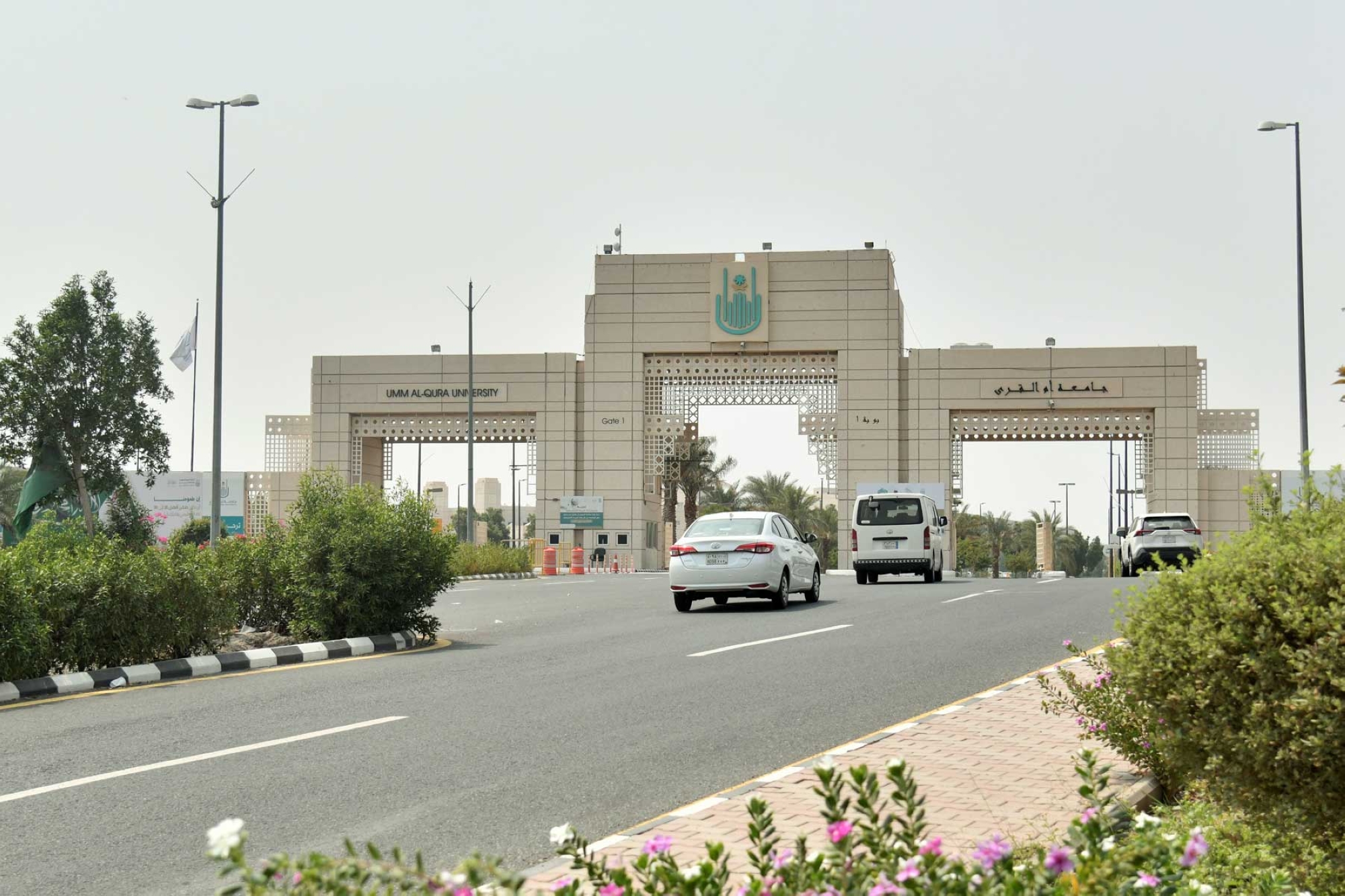
Umm al-Qura University
It is situated in Makkah al-Mukarramah City, with the College of Sharia serving as its founding core. It was established in 1950 by order of King Abdulaziz Bin Abdulrahman Al Saud. In 1981, Umm al-Qura University was founded, now comprising thirty colleges and four institutes.
Islamic University
It is a university focused on Islamic sciences and is the second-oldest governmental university, following King Saud University. Located in al-Madinah al-Munawwarah, it was established in 1961 during the reign of King Saud Bin Abdulaziz Al Saud. The university comprises nine colleges.
Imam Mohammad Ibn Saud Islamic University
The university was founded as a College of Sharia in 1953 and transitioned into a full university in 1974. The Scientific Institute in Riyadh serves as the foundation of the university, having been established during the reign of King Abdulaziz Bin Abdulrahman Al Saud in 1950. The university encompasses fourteen colleges, three higher institutes, five scientific institutes abroad, and seventy scientific institutes across various regions. In 2021, a decision was made to integrate the scientific institutes under the Ministry of Education, as universities specialize in education beyond the secondary level.
King Saud University
King Saud University, the first governmental university established in the Kingdom, was founded in 1957 during the reign of King Saud Bin Abdulaziz Al Saud. It is one of three universities established during his rule. Located in the capital, Riyadh, the university comprises twenty-one colleges and fifteen institutes and research centers, along with additional research facilities within the colleges. It also features a university city for female students and a medical city. In 2022, a Royal Order transformed King Saud University into an independent, non-profit academic institution, operating under the Royal Commission for Riyadh City. On July 25, 2023, another Supreme Order was issued to establish the university's board of directors.
In the 2023 Shanghai Ranking, King Saud University was ranked first among universities in the Kingdom, the Arab world, and globally within the 101-150 category of the top one thousand international universities.
King Abdulaziz University
The university is referred to as the Founder's University, named after Founding King Abdulaziz Bin Abdulrahman Al Saud. Situated in Jeddah City, it was originally established in 1967 as a private university. In 1971, it was converted into a governmental university. Today, it operates independently, offering twenty-four colleges, four institutes, and forty-five research and scientific centers.
King Fahd University of Petroleum and Minerals
Situated in Dhahran, Eastern Province, the university was founded by Royal Decree in 1963, aligning with the thirty-second National Day of the Kingdom. It became the first government university in the Eastern Province, which now hosts three governmental universities. The university is comprised of seven colleges offering a total of twenty specializations.
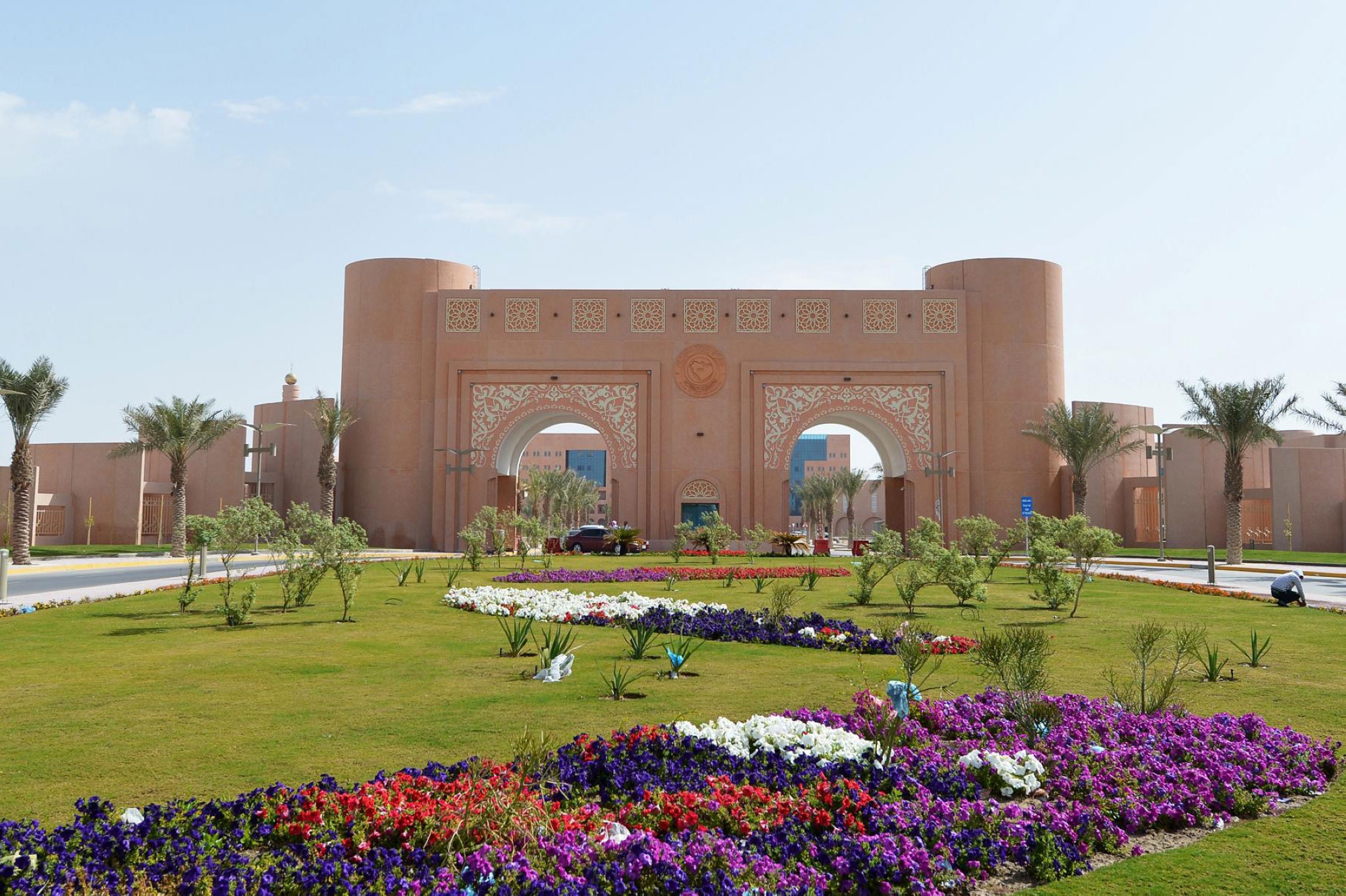
King Faisal University
Situated in al-Ahsa Governorate of the Eastern Province, it was founded by a Royal Decree in 1975. The institution began with the establishment of the College of Agricultural and Food Sciences and the College of Veterinary Medicine and Animal Resources. Today, it encompasses fifteen colleges, one institute, and fourteen centers.
Imam Abdulrahman Bin Faisal University
It is one of the Saudi governmental universities founded during the reign of King Abdullah Bin Abdulaziz. An independent institution, it is situated in Dammam City, the Eastern Province, with additional campuses in the governorates of al-Jubayl and al-Qatif.
Initially established as the University of Dammam in 2009, it was renamed in 2016 to Imam Abdulrahman Bin Faisal University, following approval from the Custodian of the Two Holy Mosques King Salman Bin Abdulaziz Al Saud. The university consists of nineteen colleges spread across six locations in the province.
King Khalid University
It is a Saudi governmental university situated in Abha City, Aseer Province. Established in 1998, it incorporates the colleges previously affiliated with the branches of King Saud University and Imam Mohammad Ibn Saud Islamic University in the province. The university comprises twenty-nine accredited colleges, spread across twenty-seven campuses.
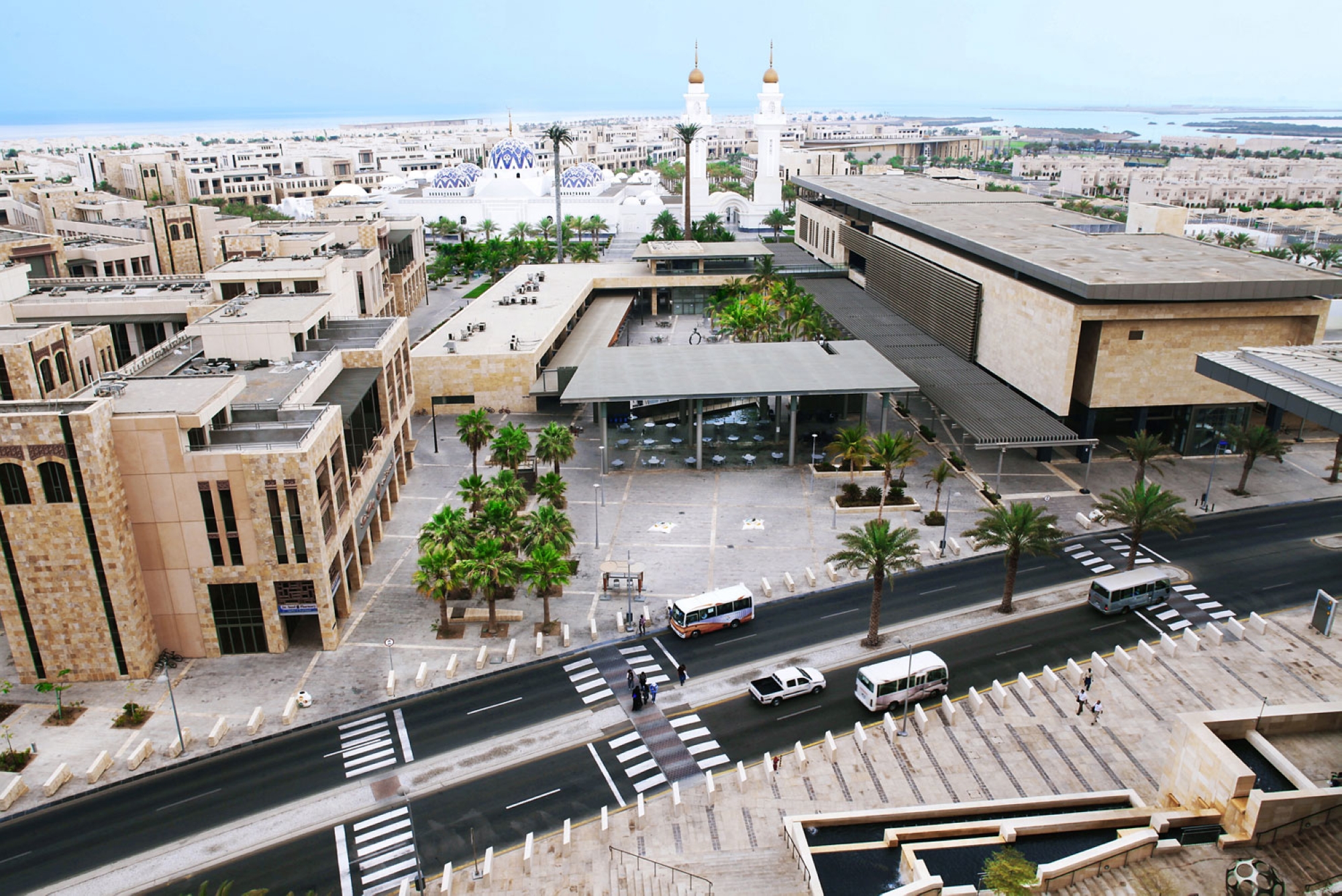
King Abdullah University for Science and Technology
Referred to as KAUST, it is an international research university and a governmental university founded during the reign of King Abdullah Bin Abdulaziz Al Saud.
Established in 2009, it ranks among the global universities specializing in research, science, and engineering. KAUST offers Master's and doctoral programs across sixteen academic disciplines, supported by scholarships. These programs are distributed across three divisions: Biological and Environmental Science and Engineering Division, Computer, Electrical, and Mathematical Science and Engineering Division, and Physical Science and Engineering Division.
Prince Sattam Bin Abdulaziz University
Founded in 2009 as one of King Saud University’s branches in al-Kharj, the university was established by Royal Decree to include all colleges in al-Kharj, al-Dilam, al-Dawasir Valley, Hawtah Bani Tamim, al-Aflaj, al-Sulayyil, and al-Hariq under the name al-Kharj University. Two years later, it was renamed Salman Bin Abdulaziz University. In 2015, by order of the Custodian of the Two Holy Mosques King Salman Bin Abdulaziz, it was given its current name, Prince Sattam Bin Abdulaziz University. Today, the university encompasses twenty colleges spanning health, scientific, humanities, and community disciplines.
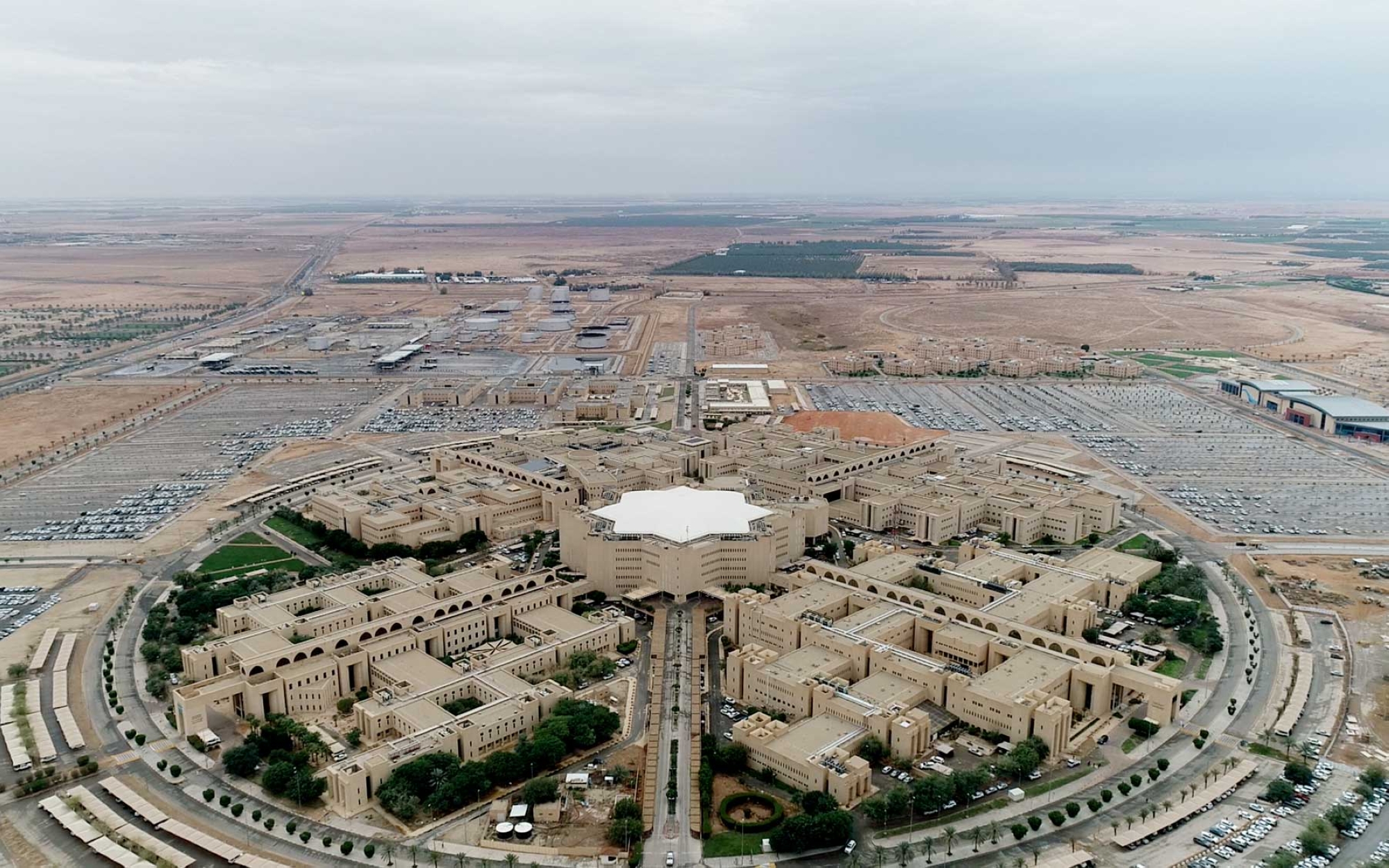
Qassim University
It is a Saudi government university located in Qassim Province, established in 2004. The main campus is situated in Mlida Center, with thirty-eight colleges spread across twelve governorates within Qassim. The university achieved recognition in the Times Higher Education World University Rankings (THE WUR 2021) in 2020.
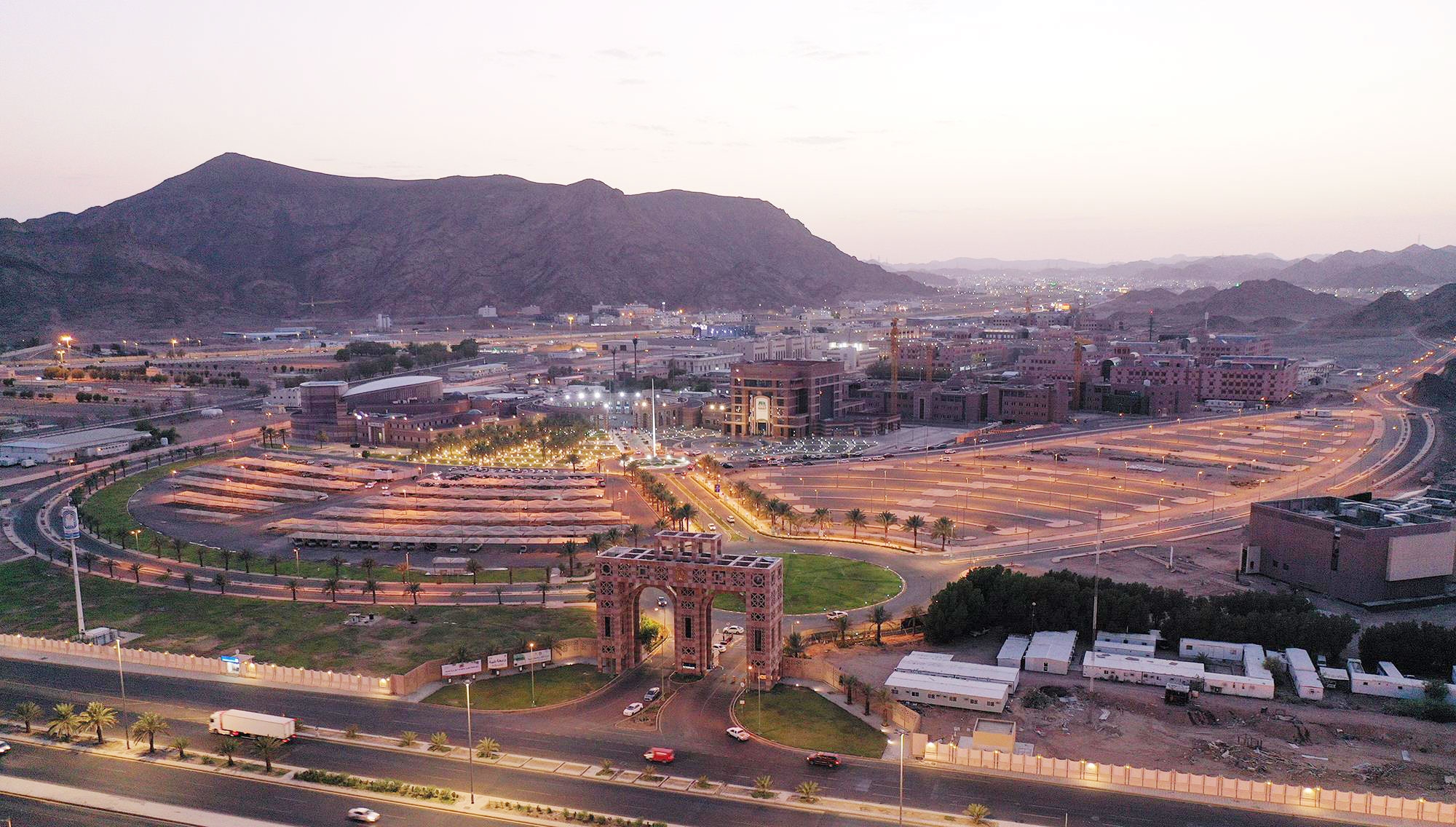
Taibah University
Founded in 2003 with its headquarters in al-Madinah al-Munawwarah, the institution launched its first year with seven colleges. Over time, it expanded, and by the academic year 2012-2013, it encompassed twenty-eight colleges and one institute. Of these, sixteen are located in al-Madinah al-Munawwarah, while the remaining are distributed across six branches in Yanbu, alUla, al-Hanakiyyah, Khaybar, al-Mahd, and Badr.
Taif University
It is one of eight universities established during the reign of King Fahd Bin Abdulaziz. Its main campus is located in al-Hawiyyah, within Taif Governorate.
The decision to establish Taif University was issued in 2003, though its origins trace back to 1981 with the College of Education under King Abdulaziz University. Today, Taif University comprises sixteen colleges, most of which are situated at the main campus, while three colleges operate in branch campuses located in Turbah, al-Khurmah, and Ranyah.
University of Hail
It is one of eight universities established during the reign of King Fahd Bin Abdulaziz. Its headquarters is in Hail City. Hail Community College, established in 1998, serves as the core of Hail University, which was founded in 2005. The university comprises twenty-eight colleges offering specializations across various fields, including science, health, engineering, administration, humanities, and community studies.
Jazan University
It was established in 2006 and its headquarters is located in Jazan City. Its colleges are distributed in its governorates and centers, including Farasan, ad-Da'ir, al-Aridah, ad-Darb, Samitah, Abu Arish, and Sabya.
The university initially comprised four colleges: the College of Medicine, the College of Engineering, the College of Computer Science and Information Systems, and the Community College. Over time, the College of Education and the College of Teachers were introduced, followed by the gradual addition of other colleges. Eventually, the university expanded to include a total of twenty-three colleges, encompassing health, applied, university, and educational colleges, along with eight institutes and centers.
Jouf University
Headquartered in al-Jawf City, it was established in 2005 and traces its roots to King Saud University, represented by the College of Science in al-Jawf. This college operated as a branch of King Saud University from 2003 until the university gained independence under its current name, Jouf University. By 2020, Jouf University had grown to encompass five research centers and eighteen colleges, spread across its main campus and branches in Tabarjal and al-Qurayyat.
Al-Bahah University
Established in 2006, it is headquartered in al-Bahah City and encompasses sixteen colleges, five centers, and one association.
Tabuk University
Its main campus is located in Tabuk City, and it has branches serving the governorates affiliated with Tabuk Province. It was established in 2007 and encompasses eleven colleges located within its headquarters, four other colleges distributed among the governorates of al-Wajh, Umluj, Haql, and Duba, and a branch affiliated with the university in Tayma Governorate.
Najran University
Located in Najran City, it was established in 2006 and consists of fourteen colleges. It offers seventy specializations. It also encompasses eleven deanships and four research centers.
Northern Border University
Established in 2007, it is headquartered in Ar'ar City. It has three branches distributed in the governorate of Rafha, Turaif, and al-Uwayqilah, and encompasses thirteen colleges.
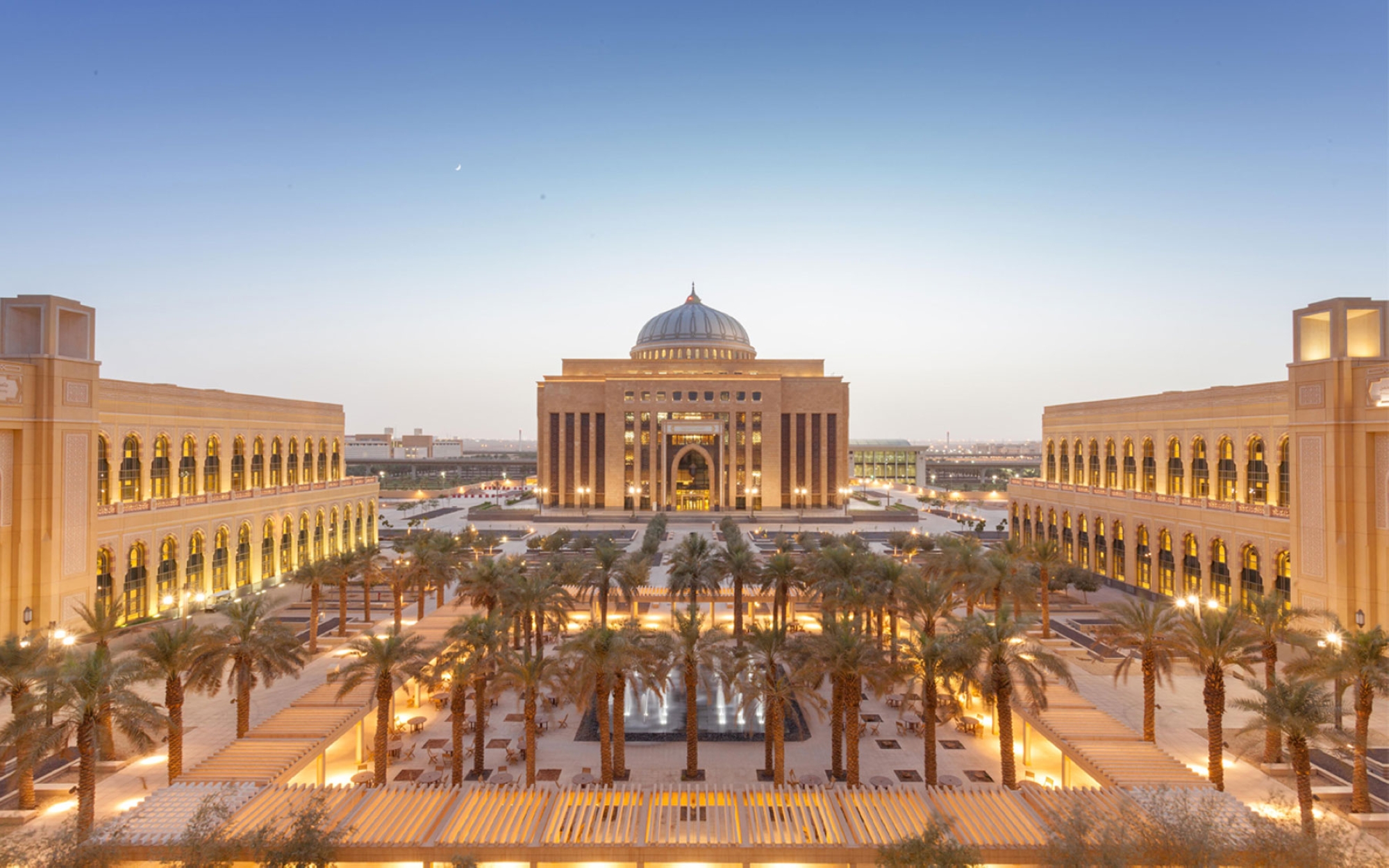
Princess Nourah bint Abdulrahman University
It is a comprehensive governmental university dedicated to providing academic education to women across various fields. Named after the sister of King Abdulaziz Bin Abdulrahman Al Saud, the founder of the Kingdom, it stands as the only university in the Kingdom managed entirely by female staff in its departments and services. Located to the north of the capital, Riyadh,
the university was established in 2006 when several colleges were transformed into a university. It encompasses nineteen colleges and institutes, offering a diverse range of disciplines, including administrative, health, scientific, and humanities fields. The university provides eighty-nine specializations and 102 academic programs.
King Saud Bin Abdulaziz University for Health Sciences
The university is headquartered in the capital, Riyadh, with two branches in Jeddah Governorate in the western region and al-Ahsa Governorate in the Eastern Province. It specializes in health sciences.
In 2019, it was ranked as the second-best modern university in the Kingdom and among the top 150 modern universities globally, according to the Times Higher Education World University Rankings. Founded in 2005, the university comprises thirteen colleges.
Shaqra University
Established in 2009, it is located in Shaqra Governorate in Riyadh Province. The university has twenty-four colleges, placing it among the ten largest Saudi universities based on the number of colleges.
Al-Majma'ah University
Founded in 2009, the university is situated in al-Majma'ah Governorate within Riyadh Province. Its colleges are spread across the governorates of al-Majma'ah, az-Zulfi, al-Ghat, Rumah, and Hawtat Sudayr Center. The university comprises thirteen colleges, ten centers, and one institute.
Saudi Electronic University
It was established in 2011 as a governmental educational institution operating under the Higher Education Council, offering higher education and lifelong learning opportunities. The university comprises the College of Administrative and Financial Sciences, the College of Computing and Informatics, the College of Health Sciences, and the College of Science and Theoretical Studies. Headquartered in Riyadh, it has branches in twelve cities and provides bachelor's and graduate degree programs, along with courses in continuous and lifelong learning.
University of Bisha
It is headquartered in Bishah Governorate, Aseer Province. Established in 2014, the University of Bisha originated as a college for teachers, an intermediate college at the time, before evolving into the College of Teachers in 1992. Today, it comprises fifteen colleges offering over one hundred programs across its branches in the governorates of Bishah, Balqarn, al-Namas, and Tathleeth.
University of Jeddah
The university traces its origins to King Abdulaziz University, and the College of Education, founded in 1974, served as its first cornerstone. Officially established in 2014, the university's headquarters is located on Asfan Road in Jeddah. It operates eight branches, six of which are situated in various neighborhoods of Jeddah, while the remaining two are in the neighboring governorates (Khulays and al-Kamil). The university comprises twenty-two colleges.
University of Hafr al-Batin
It is headquartered in Hafr al-Batin Governorate, the Eastern Province. Established in 2014, it comprises eighteen colleges distributed among the university's branches. Its headquarters is located in Hafr al-Batin and houses nine colleges. It also has three colleges in the governorates of an-Nu'ayriyyah, Qaryat al-Ulya, and al-Khafji.
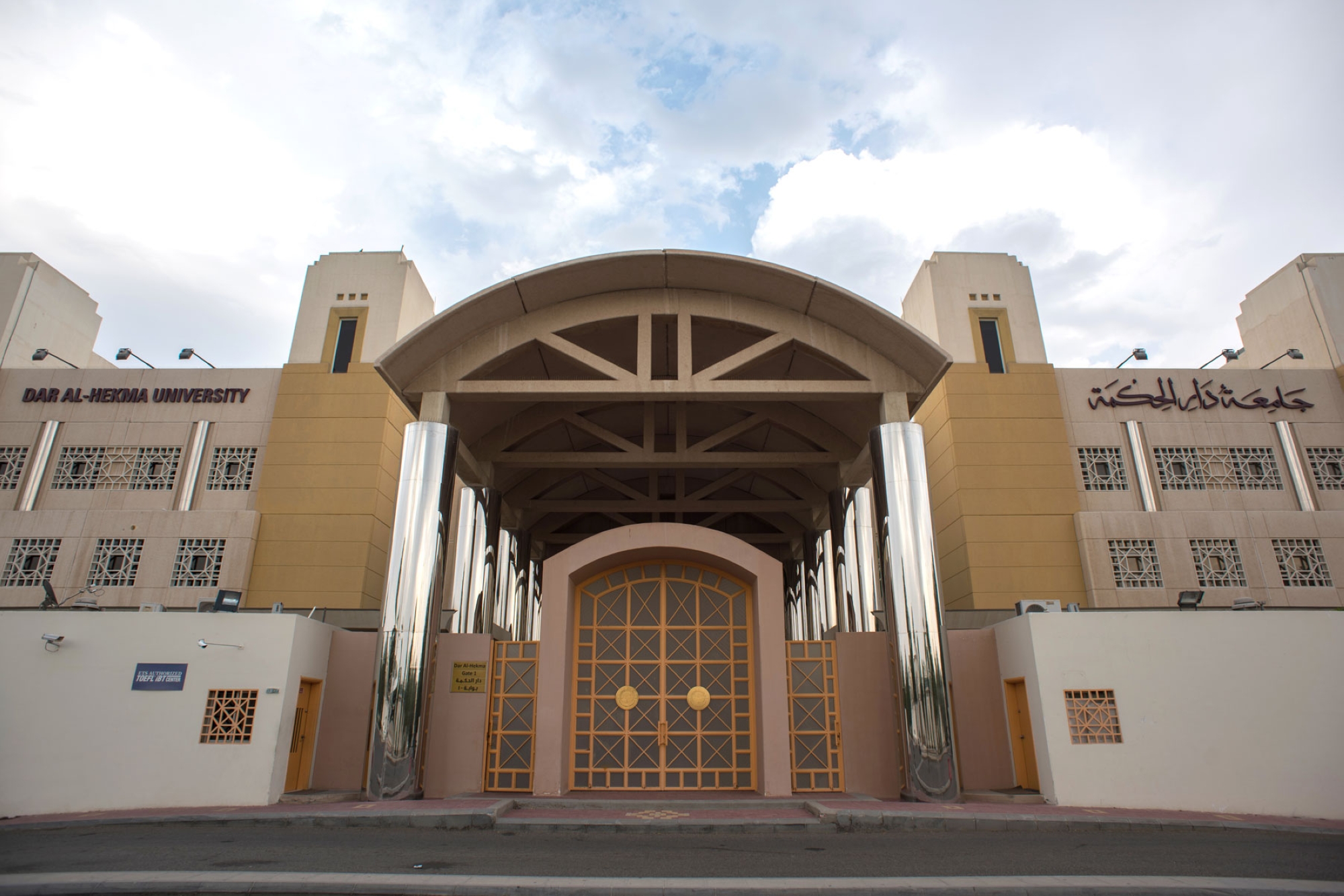
Private universities and colleges
Higher education in the Kingdom comprises thirty-eight private universities and colleges, encompassing several scientific specializations and granting all degrees similar to those of its governmental counterparts. These are:
Arab Open University: Established in 2002 and headquartered in Riyadh.
University of Business and Technology: Established in 2000 and headquartered in Jeddah.
Prince Sultan University: Established in 1999 and headquartered in Riyadh.
Fahad Bin Sultan University: Established in 2003 and headquartered in Tabuk.
Prince Mohammad Bin Fahd University: Established in 2006 and headquartered in al-Khobar.
Prince Muqrin Bin Abdulaziz University: Established in 2017 and headquartered in al-Madinah al-Munawwarah.
Al-Faisal University: Established in 2002 and headquartered in Riyadh.
Al-Yamamah University: Established in 2005 and headquartered in Riyadh.
Dar al-Uloom University: Established in 2008 and headquartered in Riyadh.
Effat University: Established in 1998 and headquartered in Jeddah.
Dar al-Hekma University: Established in 1999 and headquartered in Jeddah.
Riyadh Elm University: Established in 2004 and headquartered in Riyadh.
Al-Maarefa University: Established in 2009 and headquartered in Diriyah.
Mustaqbal University: Established in 2003 and headquartered in Buraydah.
Sulaiman Alrajhi University: Established in 2009 and headquartered in al-Bukayriyyah.
Gulf Private Colleges: Established in 2015 and headquartered in Hafr al-Batin.
Alasala University: Established in 2016 and headquartered in Dammam.
Onaizah Colleges: Established in 2016 and headquartered in Unaizah.
Ibn Rushd College: Established in 1999 and headquartered in Abha.
Ibn Sina National College: Established in 2003 and headquartered in Jeddah Governorate.
Al-Baha Private College of Science: Established in 2004 and headquartered in al-Bahah.
Batterjee Medical College for Science and Technology: Established in 2005 and headquartered in Jeddah.
Alriyada College: Established in 2006 and headquartered in Jeddah.
Al-Rayan Private Colleges in al-Madinah al-Munawwarah: Established in 2018 and headquartered in al-Madinah al-Munawwarah.
Arab East Colleges for graduate studies: Established in 2007 and headquartered in Riyadh.
Inaya Medical Colleges: Established in 2011 and headquartered in Riyadh.
Al-Ghad International College for Applied Medical Sciences: Established in 2009 and headquartered in Riyadh.
Vision College of Dentistry and Nursing in Jeddah: Established in 2010 and headquartered in Jeddah.
Buraydah Colleges: Established in 2008 and headquartered in Buraydah.
- SAAD College of Nursing and Allied Health Sciences: Established in 2007 and headquartered in the Eastern Province.
Fakeeh College for Medical Sciences: Established in 2011 and headquartered in Jeddah.
Mohammed al-Mana College for Medical Sciences: Established in 2003 and headquartered in Dammam.
Al-Faisal University - Prince Sultan College of Business: Established in 2001 and headquartered in Jeddah.
Northern College of Nursing: Established in 2021 and headquartered in Ar'ar.
Vision College - Riyadh: Established in 2009 and headquartered in Riyadh.
Al-Fayha College: Established in 2022 and headquartered in al-Jubayl.
Al-Moosa College of Health Science: Established in 2020 and headquartered in al-Mubarraz.
Jeddah Private International College: Established in 2015 and headquartered in Jeddah.
Saudi universities in ranking indicators
Saudi universities compete with global universities across various international ranking indicators, including the Shanghai, QS, and Times rankings, to secure a position among the world’s best universities.
Shanghai Ranking
In 2024, twelve Saudi universities secured advanced positions in the Shanghai Ranking, placing among the top one thousand universities globally. King Saud University ranked ninetieth, while King Abdulaziz University and King Abdullah University of Science and Technology were in the 201-three hundred range. Princess Nourah bint Abdulrahman University ranked 301-four hundred, and King Khalid University along with Taif University placed in the 401-five hundred range. Prince Sattam Bin Abdulaziz University ranked 601-seven hundred, while King Fahd University of Petroleum and Minerals, Qassim University, and Umm al-Qura University achieved positions in the 701-eight hundred range. King Faisal University ranked 801-nine hundred, and Jazan University secured a place in the 901-one thousand range.
QS World University Rankings
In 2023, Saudi universities made strides in the QS World University Rankings, with sixteen universities entering the list—an increase of seven universities compared to the nine universities ranked in 2019.
This marked the fifth consecutive year of improvement for Saudi universities in the QS rankings. Starting with nine universities in 2019, the number gradually rose to ten in 2020, eleven in 2021, and fourteen in 2022. By 2023, sixteen universities had made the rankings, with five universities entering the list in the past two years.
The Kingdom is just six spots away from countries with universities in the top one hundred worldwide. Leading the way for Saudi universities is King Abdulaziz University, followed by King Fahd University of Petroleum and Minerals, and King Saud University. Additionally, al-Faisal University and Northern Border University made their debut in the rankings.
In the 2023 QS rankings, King Fahd University of Petroleum and Minerals led Saudi universities, securing fourth place globally in petroleum engineering and ninth in mining and metallurgy engineering. King Abdulaziz University ranked fourteenth worldwide in pharmacy and pharmaceutical sciences, while Imam Abdulrahman Bin Faisal University placed twenty-first globally in dentistry.
Times Higher Education World University Rankings
Saudi universities made a significant appearance in the 2023 Times Higher Education World University Rankings, with twenty-one Saudi universities included in the global rankings based on various indicators and university standards. Six of these universities entered the rankings for the first time, while seven others improved their positions, and six maintained their previous standings. This reflects the continued prominence of Saudi universities in advanced rankings, with just one position separating them from the top one hundred global universities.
King Abdulaziz University led Saudi universities, ranking 101st globally, followed by King Fahd University of Petroleum and Minerals in the (201-250) range, King Saud University in the (251-three hundred) range, al-Faisal University in the (301-350) range, and Imam Muhammad Ibn Saud Islamic University in the (351-four hundred) range, marking its first appearance in the rankings.
Related quizzes

